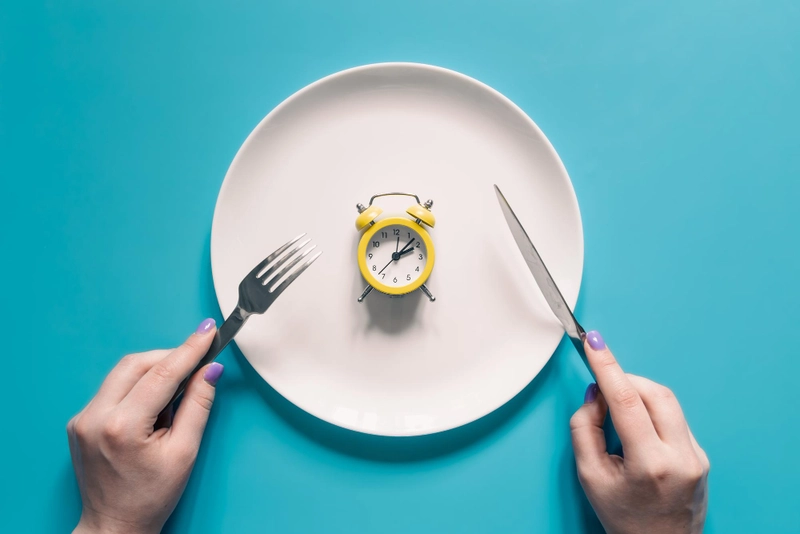- Published on: Jul 10, 2025
- 3 minute read
- By: Secondmedic Expert
How To Prevent Food Poisoning In Monsoon
Monsoon brings relief from the heat—but along with cool breezes and rains come increased chances of infections, especially food poisoning. The high moisture in the air creates a perfect breeding ground for bacteria, making food more likely to spoil and cause illness.
In this article, we’ll help you understand how to stay safe with easy, practical tips on how to prevent food poisoning in monsoon.
Why Is Food Poisoning So Common in Monsoon?
The damp and humid conditions during the rainy season promote bacterial and fungal growth. This contamination can easily affect the food we eat and the water we drink.
Common causes of food poisoning in monsoon include:
-
Eating contaminated street food
-
Drinking unfiltered or untreated water
-
Improper storage or refrigeration
-
Eating undercooked or reheated leftovers
Symptoms can range from mild stomach pain to vomiting, diarrhea, and fever—and can become serious if not treated on time.
How to Prevent Food Poisoning in Monsoon: Easy Tips
Let’s go step by step into what you should do (and not do) during this season to avoid foodborne illness:
1. Avoid Street Food and Raw Salads
Street vendors often use unclean water and keep food exposed to dust, flies, and pollution. In monsoon, this risk becomes even higher.
What to avoid:
-
Chaat, golgappas, sandwiches from carts
-
Cut fruits or raw vegetables sold outside
-
Juices from roadside stalls
Instead, eat home-cooked meals where you can control the hygiene.
2. Drink Only Boiled or Purified Water
Unfiltered water is a major cause of stomach infections during monsoon. Make sure your drinking water is:
-
Boiled for 10 minutes, or
-
Filtered using a RO/UV purifier, or
-
Packaged from a trusted brand
Avoid consuming water-based drinks like sherbets or ice made with unclean water.
3. Eat Fresh and Hot Food
In monsoon, bacteria multiply quickly. Avoid eating food that has been left out for hours.
Tips:
-
Eat freshly cooked meals while still warm
-
Avoid reheating food multiple times
-
Don't leave cooked food at room temperature for more than 2 hours
4. Refrigerate Perishables Quickly
Your fridge is your best friend in this season—but only if you use it right.
Refrigeration tips:
-
Store cooked food in airtight containers
-
Don't keep raw meat and vegetables together
-
Use leftovers within 24 hours
-
Check for expired or spoiled food regularly
5. Clean Fruits and Vegetables Properly
Rainwater often brings mud and germs to fresh produce. Even greens from the market can carry bacteria and insect eggs.
Cleaning tips:
-
Wash produce thoroughly with clean water
-
Use salt water or vinegar soak for 10–15 minutes to disinfect
-
Peel fruits like mangoes and bananas before eating
-
Avoid leafy vegetables that are difficult to clean, like spinach and lettuce
6. Practice Good Kitchen Hygiene
Contamination often starts in your kitchen.
Hygiene habits to follow:
-
Wash hands before and after handling food
-
Keep utensils and chopping boards dry and clean
-
Don't let water collect on kitchen surfaces
-
Wash dish cloths and sponges regularly
Related Health Checkups to Consider
If you're experiencing stomach problems or want to monitor your digestive health during monsoon, these lab tests (available via SecondMedic powered by Thyrocare) may help:
???? Complete Blood Count (CBC)
Checks for infections or inflammation.
???? Stool Routine & Culture Test
Detects bacterial infections, parasites, or digestive disorders.
???? CRP Test (C-Reactive Protein)
Shows whether your body is fighting an infection.
???? Food Intolerance Test
For people with recurring food-related digestive issues.
All tests come with home sample collection and online report access at www.secondmedic.com.
Foods You Can Eat During Monsoon
Here are some healthy, safe food choices during the rainy season:
-
Warm soups and khichdi – light and easy to digest
-
Steamed vegetables – safer than raw
-
Ginger tea – helps digestion
-
Turmeric milk – natural immunity booster
-
Boiled eggs or well-cooked lean meat
Avoid oily, uncooked, or refrigerated food that’s more than a day old.
Conclusion
Monsoon brings beauty, but also bacteria. Staying safe is all about being smart with your food and water. By following simple hygiene rules and eating fresh, clean food, you can enjoy the season without worrying about stomach issues.
Be alert, eat smart, and protect your family by following these tips on how to prevent food poisoning in monsoon.
Read FAQs
A. The humid, damp weather promotes bacterial and fungal growth, leading to quick food spoilage and contamination.
A. Avoid raw salads, leafy vegetables, cut fruits from outside, seafood, and fried street foods.
A. Yes, if not stored properly or left out for long, reheated food can still carry bacteria.
A. If cooked and stored properly, yes. However, improper handling can lead to infection, so be extra cautious.
A. Stay hydrated, rest, eat light food. For severe symptoms (vomiting, high fever), consult a doctor immediately.
Our Services
Request A Callback
Recent Posts
Does Skipping Meals Slow Your Metabolism?
Jul 17,2025
Mosquito-Borne Diseases to Watch Out for in 2025
Jul 16,2025
Lipid Profile Test – Normal Range and Risks
Jul 12,2025
How to Prevent Food Poisoning in Monsoon
Jul 10,2025










